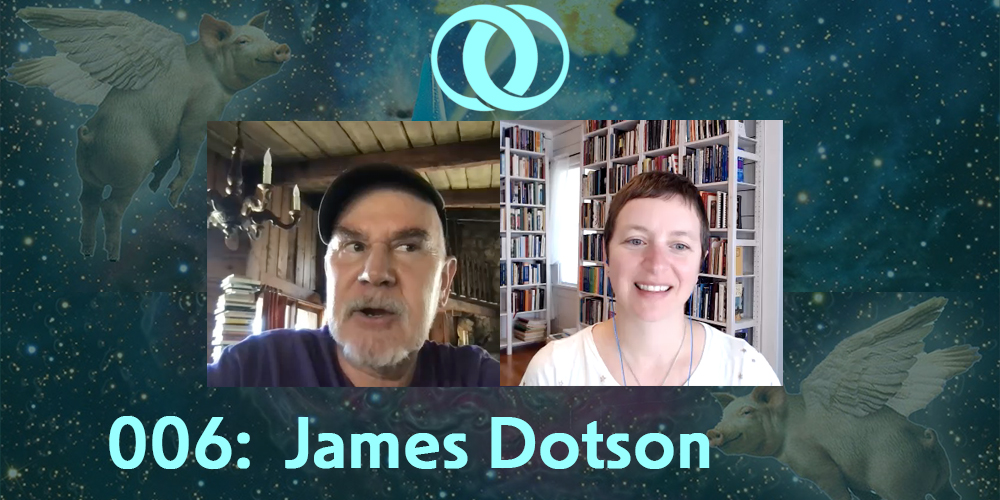
Host Jenn Zahrt smells something wonderful brewing as she chats with astrologer and psychiatrist James Dotson about the intersection of fragrance, plants, and astrology! James offers some wonderful insights into the astrology books he loves, and shares his interests in ethnobotany, alchemy, and classical astrology. Plus: raspberry-smelling nebulas, learning trigonometry via astrology, and going in magical directions!
View the books mentioned on our bookshop.org page.
(By purchasing books through this site, you help support CAELi!)
Love the show? Support our work with a financial contribution or book donation!
Read a full transcript of this episode.
Follow CAELi on FB, IG, and YouTube.
Song “Wake Up” used with permission by The E-Block Band.
*****
Episode timestamps (conversation recorded June 2023):
00:31 – James is an eternal student and lover of esoteric perfume! Jenn unpacks James’s history, and how astrology sniffed him out. (#SorryNotSorry)
02:55 – James was an early book lover, digging into the McGuffey Readers and learning to read at a tender young age.
04:31 – Great pictures with well-written articles? Count us in! James’s first astrology book back in the day was Man, Myth & Magic: An Illustrated Encyclopedia of the Supernatural. Various authors covered the topics in this 24-volume set, but Ellic Howe wrote the section on astrology – tune in to hear more about this interesting historian! (Note: Some books mentioned are available on our bookshop.org page, so check it out! By purchasing books through this site, you help support CAELi and this show!)
05:41 – What is the first astrology book that James purchased with his own hard-earned money? The classic textbook: Llewellyn’s A to Z Horoscope Maker and Interpreter.
07:58 – If James went to the Arctic Seed Bank, what books would he bring? Vote #1 moves us in the direction of astrology books as symbolic objects: The Picatrix: The Latin Version by David Pingree. Is it in Latin? Yes… Ecce Quam Bonum! And don’t forget the microfiche!
09:46 – James’s second selection is Reinhold Ebertin’s Transits: What Days Favor You?
11:18 – Visit our sponsors: CAELi’s Fertility Astrology Intensive and Rod Suskin School of Astrology!
13:06 – Another Arctic pick is the Encyclopedia of Astrology by Nicholas DeVore. James loves how this one, which he read long ago, included uncommon topics like lunar mansions, fixed stars, and essential dignities.
14:20 – Is James smuggling any other books to the Arctic? As a kid, he had a paperback reprint of The Book of Charms and Talismans by Sepharial – so that one goes in the suitcase, too.
20:00 – The Green Mysteries by Daniel Schulke also gets an honorable mention, if botany is your jam!
20:53 – What astrology book for beginners would James recommend? Blending pop psychology with traditional methods, You Were Born for This by Chani Nicholas gets a thumbs-up.
22:19 – You can find James at: https://uncannyscents.com/, where he has recently been focusing on medical astrology and has an upcoming class called Venus: Queen of Perfumes. And note: James will be leading a future CAELi book chat featuring the work of Joseph Blagrave (on plants, planets, medical, and medieval approaches).
24:11 – Thanks for listening to Within Orb! If you love the show, please help support it at no cost to you: Follow or subscribe wherever you listen, rate it five stars, or write a happy review! And if you’d like to become a CAELi member or support our work with a contribution of any amount, we’d be delighted! Thanks!
Show notes by Jen Braun, JJ Boots Productions LLC.
Transcript, Episode 6: Within Orb
Jenn Zahrt 00:01
Welcome!
James Dotson 00:02
welcome. Hey, how are you?
Jenn Zahrt 00:04
I’m doing well. Today I am here with James Dotson, a…. well, James, how would you describe yourself?
James Dotson 00:11
Wow, oh my god that’s kind of complicated. So I am an astrologer, student of astrology, eternal student, I guess.
Jenn Zahrt 00:20
And also in a larger context (of your) work, I got to know you through the world of perfume and esoteric perfume.
James Dotson 00:27
Yes. So my background in that, is that since I was very young, I have a very strong interest in plants. And I became very interested in fragrant plants and the whole culture of perfume. And then when I was in medical school, I was asked to do an honors thesis. And I chose to do it on olfaction – the sense of smell. I was mostly really interested in how smell is associated with trance states. But I did this whole review of all kinds of historical stuff. And since then, I’ve been involved as far as teaching in Los Angeles at a place called the Institute for Art and Olfaction, which is a nonprofit [whose] goal that is to open up knowledge of fragrance and perfumery to everyone. And I do some classes there. And that’s, you know, one of my big interests.
Jenn Zahrt 01:16
Awesome. One of the first German novels I ever read was called Das Parfum from Patrick Suskind. Have you read that novel?
James Dotson 01:24
In translation? Yes.
Jenn Zahrt 01:25
Yes. Yeah, it’s… it was astonishing to me to read a book about smell because it categorically can only smell like a book. What did you think of that story?
James Dotson 01:38
It’s quite brilliant. It is challenging. People struggle with descriptors for fragrances. It’s this semantic muscle that you have to exercise where you learn how to make sensory connections. So in fact, I’m interested in sensory qualities of the planets, like what does a planet feel like? Is it raspy? Is it smooth? What does it smell like? What does it taste like? And that’s how you kind of learn to come up with words that correspond to fragrances.
Jenn Zahrt 02:04
Mhmm. There’s a nebula that smells like raspberries.
James Dotson 02:08
Ooh…
Jenn Zahrt 02:09
yeah, the chemical component of the nebula itself has the olfactory signature of the same smell of a raspberry. I forget which nebula it is. I think it’s in Sagittarius. Of course, a Sagittarius nebula would smell like a raspberry!
So let’s go back to the beginning. So, you’re not yet into astrology. How did astrology knock on your door? And which book was your first astrology book? Sort of, how did you meet astrology and what book got you in the mix?
James Dotson 02:37
I was born and raised in San Diego, California. My parents had not the slightest interest in anything obscure or astrological, or anything like that. But I was a crazy little book freak and was obsessed with reading. In fact, I was so obsessed with books that my mother was, i wouldn’t say she was alarmed, but she was like, I just kept saying I want to learn how to read even before I was in kindergarten. And so she got this tutor. And I learned how to read with this 19th-century textbook called McGuffey’s Reader. And I actually learned how to read really early, and then I was instantly in the library getting books, and I always liked books on mythology and folklore and anything supernatural, and my local branch library, which is like about five minutes away, happened to have a lot of astrology books. What I didn’t know till later is – because San Diego was the home of the Rosicrucian Fellowship, which produced an ephemeris and astrology books – they had this sort of policy where they donated astrology books, their astrology books, to local libraries. And so there just were lots and lots of copies of their books, but also a lot of others.
Jenn Zahrt 03:47
Wow. That’s a really cool resource.
James Dotson 03:50
Well, this is the 70s Maybe that wasn’t as big a deal. I don’t really know.
Jenn Zahrt 04:01
So which was your first encounter with an astrology book that you remember? Because it sounds like you were swimming in a lot of them.
James Dotson 04:07
I was swimming and a lot of them; there are several that come to mind. And I do remember this 24-volume encyclopedia of the supernatural called Man, Myth, and Magic. It was an Illustrated encyclopedia, which interestingly had extremely well written articles, and I know they astrology stuff… I just looked it up again, it came out in around 1970 and Ellic Howe wrote the astrology article you know, he was thrown in …
Jenn Zahrt 04:36
No way!
James Dotson 04:38
Yes, he was of scholar history. He did, you know, a lot of stuff with World War Two.
Jenn Zahrt 04:44
yeah, Ellic Howe is a historian of astrology who wrote *the* to-date the best history of German astrology in English. I was hoping to do a better job, but he did a great job. I’ve heard that it’s hard to keep astrology books in public libraries because they get stolen.
James Dotson 05:00
So this 24-volume book was in the library. I was obsessed with it. It had great pictures and unusually well written articles, and they were by scholars, which is, you would think that was just trash, but it wasn’t so I had that, and I had several other things. But I know the book that I purchased that I read like a bazillion times,
Jenn Zahrt 05:18
…which was…
James Dotson 05:18
Which is… Lllewellyn George, A to Z Horoscope Maker and Delineator. That is a classic textbook of astrology. So I decided I needed to have one at home after checking things out from the library. And I had seen that one and I’d read through it. But I saved my Christmas birthday cash money, because it was kind of pricey, I think it was like 12 or 13. And I purchased it, and I took it home. And when something is so precious, because you spend a lot of money on it, I read it, that thing, all the way through several times. I was very good at math. And so I was there and I got my little ephemeris and table of houses and learned how to construct a chart and go through basic delineations. That book is very good for that. As well as having weird tables in the back. Like it would have a list of locations and keywords for planets and stuff, which I thought was really fun.
Jenn Zahrt 06:13
So you learned spherical trigonometry through astrology?
James Dotson 06:18
Well, yes, I was in advanced math classes when I was little. It was like nothing to me because I was really good at math, so…
Jenn Zahrt 06:25
… you were already in it. And so it’s like, Oh, you don’t have a computer to do charts. At that point, there were no computers that could do it. Right?
James Dotson 06:31
Correct. I believe San Diego was one of the first places that had computer printouts for charts, a can’t remember the guy’s name, but I got one from a friend of mine. It’s like this incredibly old printout. It must have been late 70s or early 80s.
Jenn Zahrt 06:45
Like a dot matrix printer.
James Dotson 06:47
Yes, yes.
Jenn Zahrt 06:48
There’s something that I think was called the Digicomp 7900 or seven, maybe something, I don’t know. Before my time, that’s for sure! [It’s a Digicomp DR-70] But yeah, the tables of houses and doing logarithms and trying to actually erect a chart by hand is very, not commonly taught these days. I think we’re going back to that I’ve sort of seen whispers around the community that people are learning how to do charts by hand again.
James Dotson 07:11
Well, learning stuff like daily motion and stuff like that is very helpful. Otherwise, you just don’t grasp things.
Jenn Zahrt 07:16
Yeah. Yeah. It gives you a sense of like, what you’re actually looking at really, you know…
James Dotson 07:20
…and when a planet is so fast or whatever.
Jenn Zahrt 07:23
sure, sure. Okay, so you started with Llewellyn’s, A to Z, right. Now, let’s imagine for a moment that you’re stuck somewhere, like, in a cave, I’ve said to desert island sometimes, but let’s just pretend today we’re in a cave. Or a remote place, right? Oh, actually, no, maybe you could be at the seed bank in the arctic, you know, somewhere interesting. And you’re packing your bag, and you’re bringing some astrology books with you, which books are you taking?
James Dotson 07:48
Okay, so this would change from month to month. [Laughter] into, I have to be honest, for me some astrology books or symbolic objects, which just have a great importance in my life. And so maybe not the content, but the actual book. So I would have to say because I’m very interested in astrological magic, there would have to be the Picatrix. And I remember, after many years of looking, I found a copy of the Latin version of it by Pingree from the Warburg, that came out I think, in the 80s, but I didn’t find it till the 90s. There was a book dealer who found a couple copies of it, because it’s pretty obscure and then it has microfiche in the back with like an Arabic version of it, but my Latin is terrible. I had some Latin, and it’s okay. But I was just so excited when I got it because it was something I had looked at for for a long time now.
Jenn Zahrt 08:42
So is it printed in Latin? Or is it like a facing page transcription situation?
James Dotson 08:48
Oh, it’s not translated into English. I mean, there’s a preparatory notes and some sort of explanatory stuff, but then the whole thing is in Latin.
Jenn Zahrt 08:55
Wow.
James Dotson 08:56
And a little sleeve in the back that has microfiche, I don’t even know anyone else on microfiche reader, but someday I’ll find one.
Jenn Zahrt 09:03
That’s amazing. The only time, the last time I was around one was at the UC Berkeley library. So maybe if you’re over there…
James Dotson 09:11
anyway, so that I would have that because that’s symbolically important to me. I might have… oh, I know! So I just recently decided that I would maybe have this pithy little 100 page book.
Jenn Zahrt 09:24
Oh, Ebertin’s Transits, What Day Is Favorable for Me.
James Dotson 09:29
I just love this book. It’s really small, but it’s very pithy and it has just interesting kind of like bullet points for like, planetary combinations and stuff.
Jenn Zahrt 09:40
okay, that’s lightweight, you can pack that in easily. Let’s go back to the Picatrix, though, just before we move on too far. Why would you take the Latin version and not a translation?
James Dotson 09:51
Because that was my first Picatrix that I could ever get. And so it’s kind of important to me, okay. It’s a symbolic object.
Jenn Zahrt 09:59
Okay, okay, okay. Yeah, I was gonna ask you like, which translation Do you prefer? But that gets in the whole, you know, political…
James Dotson 10:05
I don’t want to hurt anyone’s feelings.
Jenn Zahrt 10:07
Exactly. [Laughter]
James Dotson 10:07
I have every single translation, including, you know, there was a German version that came again from the Warburg. I think it came out in the 30s. And maybe was reprinted in the 60s. But there was someone who did a partial translation into English from the German. And I have that too. It’s kind of obscure.
Jenn Zahrt 10:28
Wow.
James Dotson 10:29
Yes, I’m waiting for the Arabic translation by Liana Saif who was at Warburg. Because I don’t necessarily think it’s better, but, I just, she’s a master of all the traditions. I think it would be interesting just to see her point of view.
Jenn Zahrt 10:45
Likewise, yeah, she’s a great scholar. Okay, so that’s two books, we’ve got the Latin Picatrix. And then we have Reinhold Ebertin’s miniature book on transits. What would be another one you’d take along with you?
James Dotson 10:56
I couldn’t decide on my third, when I had too many different ones…
Jenn Zahrt 11:01
You can pack a bunch, you know…
James Dotson 11:03
I found a book that I did have when I was a teenager, and I was just thinking how much I liked it. And so I will… Oh, wait, I have to open it up. So you can read it. It’s Encyclopedia of Astrology by Nicholas DeVore.
Jenn Zahrt 11:19
Yes, that book also has a million editions.
James Dotson 11:24
This is from the 60s. So, I had this, and I was a person who liked to read encyclopedias, so I read it, but it had stuff no one else had. Like, it had stuff on the degrees of the zodiac, but it focused more on fixed stars. And I was obsessed with the mansions of the Moon of which there was like no information. And so I read it and they just have a lot of other technical stuff about essential dignities and stuff that you couldn’t find elsewhere.
Jenn Zahrt 11:52
Yeah, there’s also the Arcana Dictionary of Astrology, which seems to take that into another direction, but similar kind of book, a reference work. What about if you could smuggle a couple more? Because it sounds like you’ve got a lot of these books almost as a talismanic object to be with you. You know, working through osmosis…
James Dotson 12:09
So I find things… Okay, so as a kid, I also had this paperback reprint of a book by Sepharial, “the prince of astrologers.” He was a Theosophist and early astrologer. He wrote a ton of books, and he wrote one in the 1920s called…
Jenn Zahrt 12:29
yes, The Book of Charms and Talismans, by Sepharial.
James Dotson 12:34
Look at how psychedelic this is though, so…
Jenn Zahrt 12:36
The cover is very bright, and it has a cat, the Eye of Horus, a four leaf clover. What’s that, a beetle? The scarab?
James Dotson 12:44
The scarab, yeah.
Jenn Zahrt 12:44
and then horseshoe, and rainbow.
James Dotson 12:47
So this has – he’s an astrologer. So of course – there’s astrological talismans and had planetary talismans, which were ultimately from Agrippa as republished in the book, The Magus, I think, and I was like, so obsessed with those and like, oh my god, it’s a planet of the, you know, it’s a Sun talisman or whatever, with all the little magic squares and stuff like that. So this totally captured my attention as a kid. I really liked it. You know, it was years before I really found out more about it.
Jenn Zahrt 13:17
Yeah. And you wouldn’t think looking at a book like that, that it had astrology in it.
James Dotson 13:20
He does put a lot of astrological talismans in it ’cause he was an astrologer. He was a rather fascinating person and writer. Do you know much about him?
Jenn Zahrt 13:29
Well, why don’t you tell everybody listening?
James Dotson
Well, okay, so this is another backtrack about why I knew new stuff. I was lucky to have a lot of mentors when I was growing up. And I grew up in San Diego, where there were a lot of old Theosophists because there had been a utopian community that was founded around 1900 called Lomaland. It was a theosophical community. And there were still some members left in the 70s, who would come there as children. And one of my elementary school teachers was, I think, the child of Theosophists. But long story short, I had met Theosophists who would loan me books, and so I knew quite a bit about it. But Sepharial was in this inner circle, he…. Madame Blavatsky, started this Theosphical Society in 1875. And she had an inner circle of people that she taught personally called Esoteric Session, and she taught a lot of practical occult stuff there. And he was in her super inner circle of 12 people. And he actually lived in her house and he was there with her when she died. And she, you know, apparently was quite fond of him. So he was an early Theosophist. But he also seemed to go in a lot of magical directions. He wrote books on like crystal gazing and palmistry and card reading and stuff like that.
Jenn Zahrt
Wow, that’s intense. To be there when she died and such a titanic figure? Because it was their publishing efforts that actually did change the practice of astrology in the 20th century.
James Dotson 14:58
Yeah, we won’t get into that. A lot of people feel they trashed astrology because it became character analysis. But I kind of think they preserved it, and sadly, a lot of powerful techniques went underground for a long time. But nonetheless, it kind of is what it is.
Jenn Zahrt 15:14
Yeah, I mean, just the presence of it at all was maintained by their activities. And I think that’s important to acknowledge.
James Dotson 15:21
Right? For sure. So and then I had other mentors who are astrologers that I’ve met as a teenager too.
Jenn Zahrt 15:28
If we were to sort of look at the way that you’re practicing now, you mentioned earlier about your interest in plants? Do you look at different astrological interpretations of plants, planets, things like that?
James Dotson 15:42
So yes, so I am interested in that. And of course, I think most people use these very Eurocentric texts, which, of course, is what we have by Nicholas Culpeper, and so on, and so forth. And those aren’t valuable because those plants that were important, were brought by settlers to North and South America, and are used a lot, you know, in different medical systems. But I think it’s important for people to kind of learn the basics. You know, how do you incorporate a new plant? Like if you’re living in the desert, and you come across something like, how would you decide it’s this ruled by such and such a planet and so on… you know, how does its medical use, perhaps give you clues about you know, how it may function astrologically and stuff like that.
Jenn Zahrt 16:29
So what are some of your source texts that are not in the Eurocentric Culpeper lineage? Do you have any books that take us down a wider lens?
James Dotson 16:37
To be honest, I’ve done some of this on my own just based on my personal experience of either growing plants and or wildcrafting plants, because I do think it’s important to do that. Like I used to grow roses. So roses are ruled by Venus, like everyone’s like, Oh, they’re ruled by Venus. And yes, they were used historically in the worship of Aphrodite. They had rose crowns for the goddesses and all that. But if you grow roses, I mean, you know several things. A, they have a lot of thorns, and there certainly is a very martial aspect to the plant. And the flowers can have a lot of different fragrances, some of them go in a much more spicy kind of direction. Some are more lemony, some are more fruity, and some are very musky. And so you know, there’s lots of different sub-directions in them. A lot of them seem much more lunar, like some of the white roses. Some of them seem much more Jupiterian. And you can just go on and on. So I don’t really think of one planet ruling a plant, but they’re, you know, multiple rulerships, depending on how you approach it. So, I would say, you know, I’ve read a lot of Daniel Schulke’s stuff, which I think is interesting. For Three Hands Press. He just has this new book out called Green Mysteries, and I don’t necessarily concur on all his stuff. But he actually does. You know, he studied botany at UC Santa Cruz. And he knows a lot about plants. So I take what he says with a lot of interest.
Jenn Zahrt 18:03
Yeah. And so I’m hearing you say that knowing the cosmological makeup of the planet allows you to meet it through your own practice versus reading a book. Like a book, it might not be the best way to get this information.
James Dotson 18:18
It’s a good way to start though. I think people flounder without some kind of framework to start with. But then you can’t take the framework too seriously, because it’s, I consider it to be a convenient fiction that holds things together. But you have to poke at it a little. Yeah.
Jenn Zahrt 18:31
Yeah. Very cool. So if you were going to get a beginner into astrology, where would you position them? Like how what texts would you bring up for them to get into astrology?
James Dotson 18:41
Well, I think I mentioned this before we started recording. I haven’t read a lot of introductory stuff lately, but I happened to pick up Chani’s book recently, because I just I thought she was interesting. And I know that she has a background in studying Hellenistic astrology, but she’s made it also popular. So I just was curious about her book, but I found it really interesting. It bridges pop psychology with some more actual really solid traditional stuff in a way that’s reasonably approachable. And I think if I didn’t know anything about astrology, I would find it welcoming yet rigorous. Does that make sense?
Jenn Zahrt 19:21
Yeah, that’s Chani Nicholas, Born for This.
James Dotson 19:23
Yes. I’m sorry. Yeah.
Jenn Zahrt 19:24
no worries. No, just trying to shore that up. One of her teachers was Demetra George, and Demetra is often brought up as one of the texts that people get sent to, or authors that people read when they’re getting into it. So yeah, but Chani’s had a quite a massive impact in the last 10 years on a new generation of astrologers.
James Dotson 19:46
Right. I mean, she’s embraced social media. She definitely has the charisma kind of on screen and she’s able to communicate really well. And that’s important.
Jenn Zahrt 19:57
Yeah, very cool. Well, what are you personally working on and where can people find you?
James Dotson 20:03
Well, I’m focusing a lot more on medical astrology more recently. And I’m sure we’ll have a little talk it soon about me, you know doing Joseph Blagrave Book Group (for CAELi). I do a lot of stuff on perfume. I do have an upcoming class this summer for Salem Symposium, which is both astrological- and perfume-oriented called, “Venus, Queen of Perfumes.” And it focuses on the history of perfume making and the island of Cyprus, which is associated with Aphrodite and sort of taking it through history. It also brings in some stuff like the use of magical gems, which kind of kept the traditions of you know what Aphrodite does, magically percolating through the Middle Ages and the Renaissance and kind of brings it up and connects it also with like, how perfume was used as a kind of Venetian influencer.
Jenn Zahrt 20:59
Very cool. Very cool. And do you have a website that people can go to?
James Dotson 21:03
Yes, my website has just changed carriers. So it’s a little glitchy, but I’m working on it, but it is called uncannyscents.com
Jenn Zahrt 21:13
Okay. And we’ll put that in the show notes for everybody listening in case you want to pause and click, go over there. Okay. Well, thank you for joining me today. And yes, you will be coming back to the Celestial Arts Education Library for a book club, where we will be reading Joseph Blagrave and getting into more plants, planets, medical, all this sort of medieval approaches to that entire rubric of astrology applied in the human body and more. So thank you for being the host for that and more details will be available on the CAELi website as well. And yeah, thank you for your time today, James.
James Dotson 21:49
Thank you.
Outro
Thank you for listening to Within Orb. To learn more about the Celestial Arts Education Library, or to become a member, visit our website at www.caeli.institute.
If you enjoyed this episode, please help spread the word. Follow or subscribe to Within Orb in your podcatcher of choice, rate us five stars, or write us a happy review – this helps others find the show.
We also want to give a big thanks to the indie band The E-Block for contributing their song Wake Up for our intro and outro music. You can find them at www.eblockband.com.
This is Jenn Zahrt, signing off for now. See you next time!

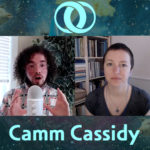
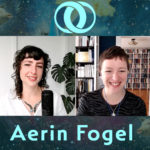
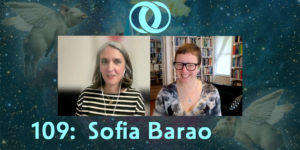
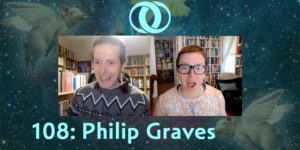
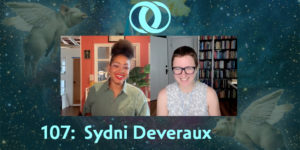
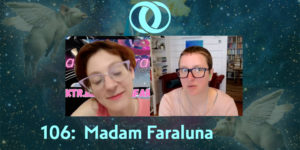
1 Comment
[…] to better understand modern astrology!) Protip: CAELi members can meet with Dr James Dotson (Episode 6) to discuss Rudhyar’s work at CAELi’s new Significant Sources Salon; Rudhyar will be […]
Comments are closed for this article!